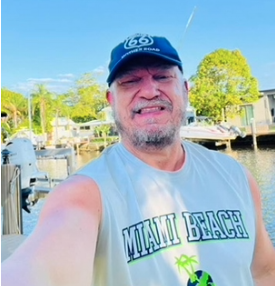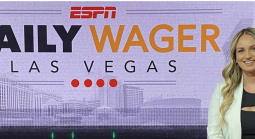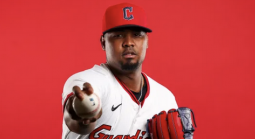Could the Popular Cashout Feature at DraftKings, ESPN Bet, Others Be Gone Following Lawsuit?
Get Out Ahead, LLC made waves late Friday night when Gambling911.com broke the news that it had filed a patent infringement lawsuit against one WagerWire, LLC and tells us they intend to go after all other alleged violators.
The patent pertains to the popular - but controversial - cashout feature.
Most of the US regulated sportsbook offer cashouts. Get Out Ahead, LLC tells Gambling911.com that operators need to have their counsel figure out if they are indeed infringing on their patent.
"We are only suing Wager Wire at the present time," they tell Gambling911.com
Cashout is a popular feature of modern 'in-play' sports betting that allows sports bettors to withdraw a bet before the sporting event is finalized. Science Direct found that nearly 52% of sports bettors have used the feature. They also call it one of the most addictive.
Among the findings: Using the cashout feature was associated with motivations to gamble to make money. The cash out feature was associated with increased psychological vulnerabilities. Motives for cashing out were to cut losses, gain money, and related to risk level.
In any event, Get Out Ahead claims to be the creators of this innovation and point to a 2015 press release and YouTube video illustrating how the concept would work, long before it was ever incorporated into today's U.S. regulated sportsbooks.
Whether the case has merit or not remains to be seen.
Early reaction from Gambling911 readers, "it's a bit of a stretch".
Nevertheless, there is a good chance sportsbooks like DraftKings, ESPN Bet and a host of others will get caught up in the crossfire. Patent lawsuits tend to settle greater than 90% of the time. None of these sites are paying royalties to Get Out Ahead for use of the cashout feature and the inventors have made it clear they intend to go after alleged violators.
"This is a completely new and innovative product. It is unique in that it benefits both the players and the host company," said Dominic LaRocca back in 2015. LaRocca is named as a plaintiff in the suit filed on Friday against WagerWire. "It allows players to keep their play liquid and reduce risk, while adding a new revenue stream to the fantasy sports site."
Liam Casey, Entain's former director of operations, first predicted what might eventually happen in this space back in 2019, shortly after the US Supreme Court threw out the Professional and Amateur Sports Protection Act (PASPA), thus ushering in a new era of regulated sports betting that spanned beyond Vegas. Entain operates the popular BetMGM sports betting brand as part of a 50/50 joint venture with MGM Resorts International. BetMGM does offer the cashout feature.
Since the “opening up” in the US sportsbetting market (on a limited state basis) there has been a number of companies (that I’m aware of) – that are specifically focused on the Cashout IP space. Some have claimed “invention”, some have claimed “first to file” and some have claimed nothing generally, but definitely have plans to file claims around the cashout experience.
Some of these sample companies include Colossus Bets (patents here – first filed Aug, 2013). Get Out Ahead LLC (patents here – first filed Feb 2016). Marketmaker Software Ltd (patents here – first filed April 2007) and some that have more a secondary market cashout focus include Bet Prophet & Prop Swap. Prop Swap is live and Bet Prophet is due in the next few weeks.
Regarding progress in the US, in particular (because of the different treatment of IP), there have been claims & counter-claims (in particular, on social media) regarding the “invention” of cashout – and this is where it’s worth looking at the differences between the EU patent system, and what’s happened in the US over the last 20 years.
Casey makes important distinctions between the EU and US patent process.
Regarding the EU (and UK in particular) my own opinion is that anyone can claim “invention” (in particular) for something like Cashout – as there isn’t the same paper trail as there is (now) in relation to the patenting of business method(s) IP for the US.
The ownership, licensing and aggregation of sportsbetting (and related) IP, is something that’s not particularly familiar to EU operators & firms. So, the standard approach (that I’m aware of) has been to sit back and “let the lawyers deal with it.” Which may not be the smartest approach – given how the US subsequently deals with breaches of IP ownership & remedy.
The most important element in terms of setting an initial bar (around IP ownership) is “first to file” VS “first to invent”. The reality is that a claim to “invent” something, that also confers ownership of the IP requires an individual (or organisation) to be first to file around the (invented) IP with (in particular) the USPTO. (There was a good recent Twitter example of claim VS counter claim re: cashout ((in the overall betting space)) – but given that it (cashout) wouldn’t have been patented in EU – the argument could only really have been resolved via looking at a “first to file” with the USPTO, for the US Market).
Typically, as far as patent offices are concerned – the person or organisation that files the patent first, is classified as the owner of the monopoly right to exploit. This is where “prior art” is so crucial in the field of patents – and talk of “invention” is cheap VS actually having a verified date and staking a federal claim to inventing a method or process that has been officially recorded.
Brad Allen from EGR – commented on a recent article that looked at this area “”For betting and gaming firms without key patents then, the US system could present major cost barriers in the future.”
…and this is where Cashout starts to get very interesting.
Given that we know that there are key differences between patenting business methods and UX’s in the EU (in this case, the Cashout method) VS the US – there no “single source of truth, (ie: first to file evidence) for Cashout in the EU. However, the landscape is different with regard to the evidence in the US.
Casey elaborated further on the possible implications, suggesting sportsbook legal departments will not be taking this matter lightly now that the hounds have been released.
Where I think that this gets really interesting is that my own experience (of large betting & gaming operators) is that when something gets flagged from a potential “legal issue” (in this case, IP) point of view – that it gets passed over to internal legal teams to deal with. Not product or commercial people.
My own experience also reflects that there can (sometimes) be a disconnect between a legal understanding of what a simple piece of bet functionality is VS or even what a UX or business method is VS how that business method is made real from a product or commercial POV. There can be a disconnect between a legal team’s theoretical understanding of the impact of something VS the “real world” application of the “thing”. In the case of cashout + UX + graphical user interface – this could prove to be a very costly error for firms that don’t join up communications between the product & commercial side of the business & the legal side.
DraftKings has been here before. They were sued back in December 2021 by Diogenes Ltd, who had licensed the cashout feature to the aforementioned Colossus Bets. In its complaint in December, Colossus and Diogenes estimated that damages could exceed $1 billion.
A federal judge in the District of Delaware ruled in favor of a motion by DraftKings to recommend canceling a patent related to the cash-out feature.
John Holden of Legal Sports Report explained the ruling:
The court begins its analysis by concluding that the idea of hedging financial risk is undoubtedly an abstract concept. The court also notes the plaintiffs did not dispute this fact. Indeed, the Supreme Court has previously held that the concept of being able to hedge financial risk is “an unpatentable abstract idea.”
In looking at the second step, the court agrees with DraftKings’ arguments that while there are numerous different steps taken in the process, these are largely generic and effectively mirror what takes place at a brick-and-mortar casino.
The judge articulates that the plaintiffs did not even really dispute that the buy-out is a means of hedging risk.
Analyzing a lot of factors does not change the facts
The plaintiffs argued that because of the real-time processing of multiple sources of information to always reflect accurate pay-out information, the claim should be patentable.
But that was rejected, resulting in a recommendation that the District Court find the claim ineligible for a patent.
In the coming days we will be discussing with Get Out Ahead, LLC the strategy behind this latest court filing and why they believe the results will be any different than Colossus Bets prior efforts. So stay tuned.
|
|
















